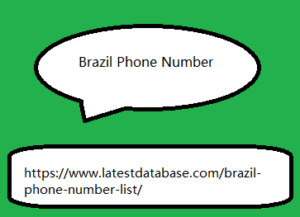Post by afifatabassum on Mar 11, 2024 10:07:17 GMT 1
Facebook continues to grow and its competitors are trying to change their face to maintain a niche presence (MySpace chooses music, Friendster young Asians). In our country there are almost 13 million users, mostly men (up to the age of 18 there are more women than men), representing all age groups. Taking a look at the past, it is curious to note how Italian teenagers, unlike what happened in other parts of the world, discovered it late: in November last year they were only 8.8% of the total users, while now they represent 19% of the total. It would be interesting to understand how much this is affecting old habits (e.g. the use of Windows Live Messenger). Other data on the page dedicated to the Facebook Observatory .
To add a qualitative dimension to these data I invite Brazil Phone Number you to fill out this questionnaire useful to Angelo Romeo (LUMSA) to complete a research on Facebook usage habits (to be sent to a.romeo[at]lumsa.it).During the first European Personal Democracy Forum Anthony Hamelle of Linkfluence presented a social network analysis regarding news sites and blogs in Germany, Holland, France and Italy. Unfortunately the paper does not expose the methodology and sources of analysis, leaving us only the conclusions. Map & Analysis of the European political web Among these, it emerges that conversations generally occur within the boundaries of each national community, but Eurosceptic positions manage to go beyond these boundaries and find international support.

Furthermore, we cannot fail to point out the peculiarity of the Italian blog/infosphere, which, as Sergio says , appears isolated, closed in on itself, substantially disinterested in the Union's agenda and heavily inclined towards personal opinions rather than political analyses. The causes? Giuseppe highlights some of them , I add the poor culture of the internet understood as trust that, through an intellectually honest debate carried out online, one can actually contribute to the growth of political culture, if not to the formation of the agenda.
To add a qualitative dimension to these data I invite Brazil Phone Number you to fill out this questionnaire useful to Angelo Romeo (LUMSA) to complete a research on Facebook usage habits (to be sent to a.romeo[at]lumsa.it).During the first European Personal Democracy Forum Anthony Hamelle of Linkfluence presented a social network analysis regarding news sites and blogs in Germany, Holland, France and Italy. Unfortunately the paper does not expose the methodology and sources of analysis, leaving us only the conclusions. Map & Analysis of the European political web Among these, it emerges that conversations generally occur within the boundaries of each national community, but Eurosceptic positions manage to go beyond these boundaries and find international support.

Furthermore, we cannot fail to point out the peculiarity of the Italian blog/infosphere, which, as Sergio says , appears isolated, closed in on itself, substantially disinterested in the Union's agenda and heavily inclined towards personal opinions rather than political analyses. The causes? Giuseppe highlights some of them , I add the poor culture of the internet understood as trust that, through an intellectually honest debate carried out online, one can actually contribute to the growth of political culture, if not to the formation of the agenda.







 +
+ 


 =
= 
 +
+  =
= 
 = puffers secret lover
= puffers secret lover =
= 